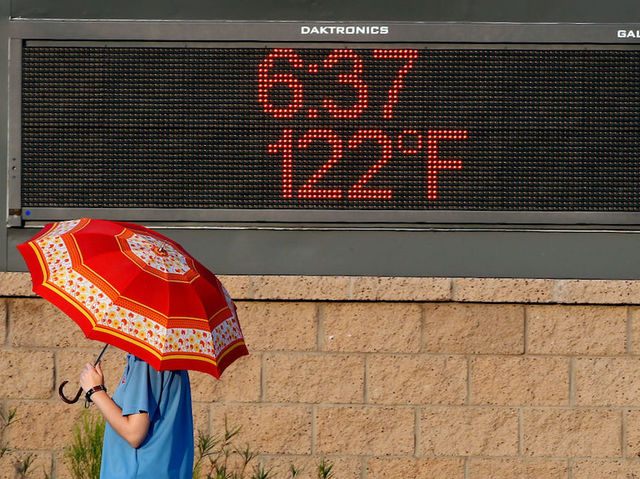2018: fourth hottest year
August 11, 2018 | Expert Insights

Heatwaves across the world are resulting in casualties and reduced crop yields.
Background
Global warming or climate change is the increase in the average temperature of the Earth’s climate system - largely attributed to the excess presence of greenhouse gasses released from human activity. It is generally attributed to a century-scale, implying there needs to be a steady rise in temperatures over a century or more, for the phenomenon to be classified as climate change.
The average temperatures have been on the rise for the past six years, with 2016 being the hottest year on record. In 2013, the Intergovernmental Panel on Climate Change (IPCC)’s Fifth Assessment Report concludes that it was extremely likely that human influence has been the dominant cause of climate change observed since the mid-20th century.
Analysis
This year is projected to be the fourth hottest year on record, and the fact that the top three on the list are all preceding years, it is conclusive proof that greenhouses gases, emitted since the Industrial age, are the prime cause of global warming. The models currently developed predict an increase of 0.5 to 4.8 degree Celsius in global temperatures, which would result in the melting of the polar ice caps and the flooding of every major low-lying and coastal area.
The recent increase in temperatures does vindicate the global scientific committee’s models on the temperature increase, but the threat of climate change is certain to intensify if large scale counter measures are not implemented.
Temperatures are rising globally, and governments are unable to cope with the increasing temperatures. Heat waves across the world are bound to get more intense, and basic necessities like food, water and electricity may soon be disrupted. Carbon found in the atmosphere is at its highest levels in over 800,000 years and Carbon dioxide emissions grew to record levels in 2017.
The global community did agree on a common framework to combat climate in Paris back in 2016, but the withdrawal of the United States, compounded with the inability of the wealthy countries to assist low income countries to combat the impact of climate change is complicating problems. National and local efforts to counter global warming include planting more trees and painting the roof of houses white, which are fine short-term solution, but they do not counter the rise in temperatures after a terminal point.
Climate scientists, on the other hand, are trying to build models which can predict the duration and intensity of heat waves, in order to tailor-make solutions for specific regions. However, temperatures increasing in Europe are quicker than what models have been predicting, making it extremely difficult to tackle it. Researchers with the World Weather Attribution recently concluded that climate change caused by human activity doubled the likelihood of record high temperatures in Northern Europe.
The impact of this is clear: there is a greater strain on the energy grids of Europe, food supply chains, and water resources as the extreme heat is failing most of the systems in place. In addition to the logistics of survival, wheat production is predicted to decline in Western Europe this year as the heat wave leaves the farmlands parched and in need for more water than usual. Palle Borgstrom, president of the Federation of Swedish farmers estimates at least USD 1 billion in agricultural losses.
Assessment
Our assessment is that the increase in temperatures will result in greater disruption of basic services, food stocks and access to portable water. We believe that the common temperature reduction target agreed in the Paris Agreement is a goal that all countries should reaffirm to achieve in their respective deadlines. The withdrawal of the United States may represent a lack of confidence in the agreement, but it is worthwhile to remember that irrespective of whether any country is part of the agreement or not, the negative impacts of climate change do not respect political borders.








Comments